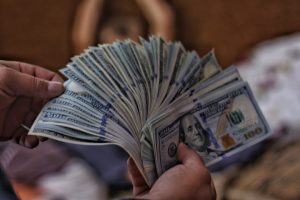Pakistan is an emerging economy that has been experiencing rapid growth in recent years. However, the country is facing a serious economic crisis due to its dwindling foreign exchange reserves. The country’s foreign exchange reserves have been declining steadily over the past few years, and if this trend continues, Pakistan could run out of forex in the near future.
Foreign exchange reserves are the total amount of foreign currency held by a country’s central bank. These reserves are used to finance imports, pay off foreign debt, and stabilize the exchange rate of the country’s currency. A healthy level of foreign exchange reserves is essential for any country’s economic stability and growth. However, Pakistan’s foreign exchange reserves have been declining rapidly, and experts predict that the country could run out of forex very soon.
There are several reasons why Pakistan’s foreign exchange reserves have been declining. One of the main reasons is the country’s high imports. Pakistan is heavily reliant on imports for many goods and services, including oil, machinery, and raw materials. The country’s imports far exceed its exports, resulting in a large trade deficit. This means that Pakistan has to pay more for imports than it earns from exports, which puts pressure on its foreign exchange reserves.
Another factor contributing to the decline in Pakistan’s foreign exchange reserves is the country’s high foreign debt. Pakistan has borrowed heavily from foreign lenders to finance its development projects, and the debt has been piling up over the years. The country’s debt-to-GDP ratio is very high, which means that it is spending a significant portion of its revenue on debt repayment. This puts further strain on its foreign exchange reserves.
Additionally, Pakistan’s political instability and security concerns have also contributed to the decline in its foreign exchange reserves. The country has been facing several security challenges, including terrorism and insurgency, which have led to a decline in foreign investment and tourism. This has resulted in a reduction in foreign currency inflows, further depleting the country’s foreign exchange reserves.
The decline in Pakistan’s foreign exchange reserves has serious implications for its economy. If the country runs out of forex, it will face several challenges, including a shortage of imported goods, higher inflation, and a weaker currency. This could lead to a further decline in the country’s economic growth and development.
To address the issue of declining foreign exchange reserves, Pakistan needs to take several measures. One of the main measures is to reduce its imports and increase its exports. The country needs to focus on developing its export industry and diversifying its export base. This will help increase its foreign currency inflows and reduce its trade deficit.
Pakistan also needs to address its high foreign debt. The country needs to adopt a more sustainable debt management strategy and reduce its reliance on foreign borrowing. This will help free up more resources for economic development and reduce the burden on its foreign exchange reserves.
Furthermore, Pakistan needs to address its security concerns and create a more stable and secure environment for foreign investment and tourism. This will help increase foreign currency inflows and boost the country’s foreign exchange reserves.
In conclusion, Pakistan is facing a serious economic crisis due to its declining foreign exchange reserves. If the country does not take immediate measures to address this issue, it could run out of forex in the near future. To prevent this from happening, Pakistan needs to reduce its imports, increase its exports, address its high foreign debt, and create a more stable and secure environment for foreign investment and tourism. These measures will help stabilize the country’s economy and ensure its long-term growth and development.






